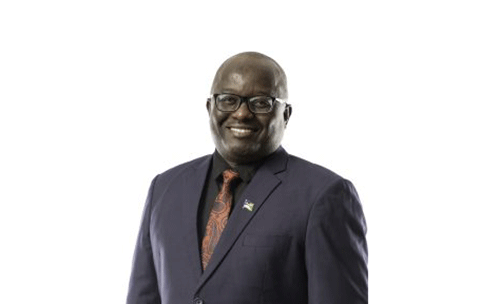Landless People’s Movement (LPM) parliamentarian, Eneas Emvula, has called for urgent action to protect the rights of Namibia’s children, highlighting the realities faced by many young citizens who are forced to work for survival.
He urged leaders to prioritise the needs of the most vulnerable and ensure that the nation’s progress benefits all.
He recounted meeting 14-year-old Absalom from Oshifo, who labours at the Etunda Irrigation Scheme to sustain his family.
“This is not an isolated tragedy – it is the lived reality of thousands of Namibian children robbed of their right to a dignified childhood,” the MP said during his maiden speech in the National Assembly.
He accused the government of normalising inequality and abandoning rural communities, calling the systemic failure a “betrayal of the revolution and an indictment on the ruling class.”
Standing in Parliament, Emvula made it clear: his presence was not a personal triumph, but a collective assertion of the will of the landless, the working poor, and the dispossessed – from the banks of the Zambezi to the dry heartlands of Omaheke.
In his speech, he also paid homage to LPM leader Bernadus Swartbooi, hailing him as “a revolutionary whose relentless commitment to justice anchors a people’s movement built not on privilege, but on pain and purpose.”
Emvula lamented “the failure of post-independence Namibia to fulfil the promises of 1990”, describing the country today as “ruins of a revolution betrayed, where land restitution remains a broken whisper and economic capture feeds the few at the expense of the many.”
“We were not liberated to become wage slaves but to reclaim our sovereignty,” he thundered.
Further sharpening his attack, he laid bare what he described as a deliberate strategy by government to “contain rather than empower” young people, accusing the State of absorbing youth into bloated security structures instead of creating pathways for productive economic participation.
“This is not employment – it is containment. A government worth its salt would harness the energies of its youth for nation-building, not surveillance,” he charged.
Turning to Namibia’s broader economic order, Emvula was unsparing: “The objective of our struggle was never to exchange white masters for black managers of a capitalist order.” He described the current system as one that thrives on hunger, landlessness, censorship and despair – while a privileged few accumulate tenders and luxury vehicles.
The LPM member warned that hope alone would no longer suffice.
“The time for passive hope has ended,” he said.
“We must dismantle the capitalist economy that continues to serve only a narrow class and reconstruct it on principles of equity, public ownership, and democratic participation,” he continued.
Reflecting on the squalor in Windhoek’s informal settlements, Emvula said Namibians are forced to live in riverbeds and makeshift structures while the State offers only photo ops and empty promises.
“This is not governance – it is negligence dressed in bureaucracy,” he said.
Finally, on the Appropriation Bill currently before Parliament, he minced no words: “I cannot in good conscience support this budget in its current form. It is a document devoid of revolutionary intent.”
He vowed that until the budget prioritises land reform, food sovereignty, decent housing, jobs and education for all, the LPM would reject it in solidarity with the working masses who have for too long been asked to endure in silence.


